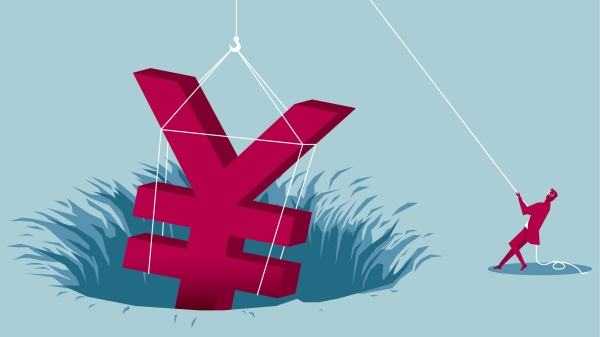The current Gini coefficient, which represents the gap between the rich and the poor, is very high. (Image source: Adobe stock)
[SeeChinaNewsonNovember292021](See a comprehensive report by Chinese reporter Li Zhengxin)Xi JinpingThe authorities previously proposedCommon prosperityAfter the plan,China Central BankCai Fang, a member of the Monetary Policy Committee, stated at a forum hosted by Caijing magazine on November 28 that the current representative of the gap between the rich and the poorGini CoefficientVery high, “I can’t say that this is common prosperity.”
On November 28th, Cai Fang, former vice president of the Chinese Academy of Social Sciences and member of the Monetary Policy Committee of the People’s Bank of China, stated at the 19th Caijing Annual Conference “Caijing Annual Conference 2022: Forecasts and Strategies” that high-quality Promote common prosperity in development, and build a coordinated package of primary distribution, redistribution, and tertiary distribution.
From an economic perspective, primary distribution refers to the distribution in which gross national income is directly linked to factors of production. Any production activity is inseparable from factors of production such as labor, capital, land, and technology. Under the conditions of a market economy, a certain amount of currency must be paid to obtain these factors. This monetary reward forms the primary distribution income of the provider of each factor.
Redistribution covers income redistribution and wealth redistribution. It mainly refers to the transfer of income and wealth (including physical property) by the government through taxation, charity, social welfare, public services, land reform and other means. In addition, the division of divorced property is also a redistribution.
In the redistribution process, the government has no expenditure to realize the redistribution of social income and wealth. This process neither consumes production factors nor increases social output. It is generally regarded by economics circles that the government is lossless. Common social welfare and security in daily life, as well as subsidies to specific enterprises, are all a manifestation of redistribution.
However, Cai Fang pointed out the current situation in China: 20 to 34 years old is the best childbearing age, but at this stage, most people are still struggling to climb the income ladder, not reaching the highest point of occupation and the highest point of income. At the same time, it is also the stage where the burden of housework is the heaviest. There is no time for childbirth, consumption and self-improvement, which has become a vicious circle.
Cai Fang said that China needs to reduce inequality through the redistribution of national income and increase the supply of social welfare, but to reduce the Gini coefficient, “there is a lot of work to do.”
He said that to achieve this goal, it is more important to “build a basic public service system that covers the entire life cycle of the whole people, which can also be called a social welfare system.”
Cai Fang believes that economic development must be maintained within a moderate and reasonable growth range. Moreover, the Gini coefficient should fall below 0.4, “If it is higher than 0.4, it is impossible to say that this is common prosperity.”
According to the National Bureau of Statistics of China, China’s Gini coefficient in 2020 is 0.47.
According to OECD estimates, the average Gini coefficient of developed countries in 2021 is 0.314.
In fact, the gap between the rich and the poor in China is huge, and redistribution has not been done well.
The Gini coefficient is a commonly used international indicator to measure the gap between the rich and the poor. In the range of 0-1, the closer it is to 0, the more even the income distribution is. Usually, 0.2 or less is regarded as absolute egalitarianism. The higher the Gini coefficient, the larger the gap between the rich and the poor, 0.4-0.5 means a larger gap between the rich and the poor, and above 0.5 means a large income disparity.
In 1978, China’s Gini coefficient was about 0.3, and after 1994 it exceeded 0.4.
In December 2012, the China Household Finance Survey and Research Center, co-founded by the People’s Bank of China and Southwestern University of Finance and Economics, released the “China Income Inequality Report”, showing that China’s Gini coefficient was as high as 0.61 in 2010.
In 2020, Li Keqiang just mentioned at the closing of the “Two Sessions” of the Chinese Communist government that there are still 600 million people in China with a monthly income of about 1,000 yuan, which shocked all walks of life.
The State Council Information Office of China issued the “China’s Comprehensive Well-off White Paper” in September this year, aiming to endorse Chinese President Xi Jinping’s announcement that China has completed all-out poverty alleviation and has entered a well-off society. China’s well-off society is officially stated as “a well-off society with coordinated development of political civilization and social civilization.” However, observers have analyzed data and believe that the gap between the rich and the poor in China continues to be severe. At the level of “political civilization”, China is a high-pressure society lacking freedom.
Editor in charge: Xin He Source: Look at China
Short URL of this article:
All rights reserved, any form of reprinting requires Chinese authorization. It is strictly forbidden to establish a mirror website.
[Honorary Member Wanted]Streams can merge into the sea, and small kindness can achieve great love. We sincerely recruit tens of thousands of honorary members from Chinese people around the world: each honorary member only needs to pay one subscription fee per year to become an honorary member of the “Watch China” website, which can help us break through censorship and blockade, and provide at least 10,000 mainland Chinese compatriots Provide independent and true key information to warn them in times of crisis and save them from the great plague and other social distress.

.
